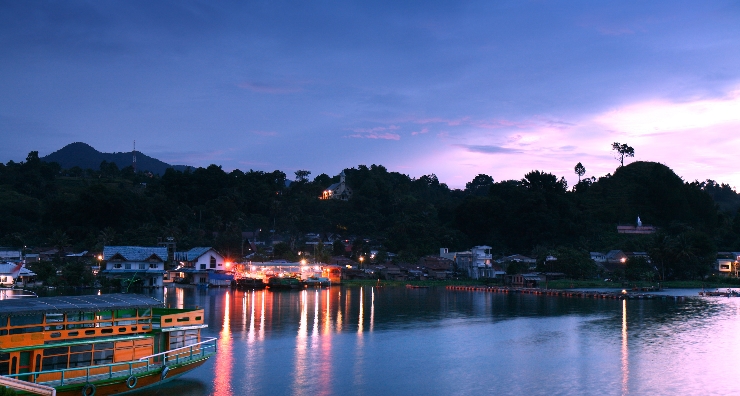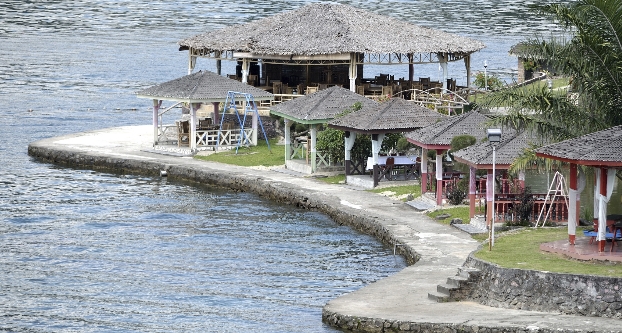Driving commercial and political engagement between Asia, the Middle East and Europe
Driving commercial and political engagement between Asia, the Middle East and Europe
Driving commercial and political engagement between Asia, the Middle East and Europe

For much of the past decade, Indonesians have happily accepted the description of their country as an emerging democracy and emerging market economy, but the elections this year reflect their growing aspirations to go beyond and become a major global player.
The country of 250 million people will go to the polls this Wednesday, July 9 to vote for a new president, Indonesia’s fifth since it started the transition in 1998 from the long authoritarian rule of Soeharto (more commonly known as Suharto) to a more liberal democratic system.
Indonesia had only two presidents in the first 53 years of its independence since 1945, and both men, Sukarno, the first President and Soeharto, the second, ended their reigns tragically in the face of massive people power movements. The electoral democracy introduced since then has ensured four peaceful and orderly successions. This year should be no exception.
The successful democratic transformation of Indonesia, the country with the world’s largest Muslim population, stands out in the face of failures of other emerging democracies, including neighbouring Thailand and Muslim-majority Egypt, both of which have now reverted to military rules.
One key reform since then, in 1998, was the introduction of two-term limits for any president, meaning that the incumbent President Susilo Bambang Yudhoyono cannot run this year.
Both of the two candidates seeking to take his place have captured the nation’s mood for Indonesia to play a more active role on the global stage.
Both offer staunchly nationalistic economic policies and a more assertive foreign policy in their campaigns. With both men offering similar policy visions, the election comes down to which personality suits Indonesia’s ambitions to be a global player best.
Voters could not have asked for more contrasting styles from the two candidates.
Joko “Jokowi” Widodo, the current governor of Jakarta and current frontrunner in the race, has built his reputation as a humble leader, someone who listens more than talks. He is also young, at 52, and will appeal particularly to the young voters craving for real change.
His challenger, 62-year-old Prabowo Subianto, is a former military general and has created a reputation as someone who is decisive, if not aggressive. Although he was dismissed from the military and has questionable human rights track records, many voters are willing to look beyond that as they seek a leader willing to make the tough decisions.
President Yudhoyono is leaving office somewhat discredited by his own people for his indecisiveness and for his failure to stem corruption within his inner circle.
Voters want a change, and Jokowi and Prabowo are promising just that. Barring any major cheating, the outcome in July will reveal much about the electorate’s preference between the two styles of leadership.
Whoever emerges as the winner, Indonesia is proving to the world not only that democracy in the fourth most populous nation is possible, but that the political stability this has created has helped the nation pursue sustainable economic development and growth.
Whoever still thinks that democracy and development are two opposing goals, should look at Indonesia’s experience.
With the economy growing at a steady average of six percent a year for much of the past decade, millions of Indonesians have been lifted out of poverty, and many of them are joining the ranks of the burgeoning and consuming middle classes, further fuelling economic growth.
Signs of the nation’s growing prosperity are visible everywhere for any first time visitor, from the clogged streets of Jakarta suffering from too many vehicles and not enough roads, to the congestion and long lines at the city’s airport as more and more Indonesians are flying to travel between cities and islands.
Indonesia today is a member of the G20 (the top 20 of the world’s largest advanced and emerging economies), and many analysts agree that at the present rate of growth, it will be in the top 10 by 2025, and possibly top five by 2040.
The growing economic clout has given resource-rich Indonesia confidence in setting the terms for foreign investors, particularly those in the extractive industry.
The next president will to continue to put pressures on international companies currently mining Indonesia’s oil, gas, gold, coal and other mineral resources to give more concessions to the host nation.
PT Freeport Indonesia, an affiliate of Freeport McMoran Copper and Gold Inc., will face tough negotiations to extend the contract for its hugely profitable gold mining operations in the eastern province of Papua by 2019. Foreign mining companies lost the battle with Yudhoyono this year when they were banned from exporting raw ore and have to invest in building the smelting facility in Indonesia.
This is just the tip of the iceberg as far as nationalist economic policies are concerned. Both presidential candidates, playing into the increasingly nationalist sentiments, have promised that more of the revenues and jobs from Indonesia’s natural resources must stay in the country.
They argue that while they welcome foreign investment, Indonesia needs to move up the production value chain that emanates from its own natural resources. The Asian economic landscape has become that much more competitive, and Indonesia understandably will be relying more on the competitive advantages provided by its natural resources.
But investors can rest assured that Indonesia will most likely play by the international rules and will not rescind existing contracts unilaterally. Tough talks by both candidates about the evils of capitalism and the neo-liberal economic policies of the outgoing government are campaign posturing to win votes. Once elected, the new government, whoever wins, will act responsibly.
Foreign policy may not feature prominently in the presidential election campaign, but it is also clear from the vision statements of both candidates that they believe a strong Indonesia can and should play a bigger role in the global stage, certainly in Asia.
Many Indonesians look back with pride to 1955 when the country hosted the first ever conference of newly independent countries in Asia and Africa in the West Java city of Bandung. The Africa-Asia meeting became the precursor to the Non-Aligned Movement that offered a third way for countries not willing to take sides in the Cold War.
Presently, Indonesia plays an important role in Asia, either by itself or through the Association of Southeast Asian Nations (ASEAN) of which it is the largest member. In the 1990s, it helped put together the peace deal in the Cambodia civil war; Indonesia was also instrumental in establishing various international and regional forums such as the Asia Pacific Economic Cooperation (APEC) forum and the East Asia Summit to help promote closer regional integration.
Candidate Jokowi has broached the idea of Indonesia becoming an Indo-Pacific power, taking on the responsibility of overseeing the security, including navigation safety, of the seas which it controls. This is a role that befits the large archipelagic state straddling the Indian and the Pacific oceans. Indonesia controls four sea lines of communications, including the busy Malacca strait, that are vital to international trade and shipping routes.
Jokowi plans to invest more in naval and maritime capability, sending clear signals to its neighbours that Indonesia intends to protect its maritime borders against piracy, illegal fishing, smuggling, trespassing and against the impacts of the possibility of physical conflicts in the South China Sea.

A luxury cottage at Toba Lake in Medan, Indonesia. Photo by bayuharsa/iStock/Thinkstock
Indonesia is not a party to the current territorial disputes in the South China Sea that pit China against other Southeast Asian countries. Instead Indonesia has played the role of an honest broker, trying to bring key players, particularly China, to the negotiating table.
As an aspiring Asian power, Indonesia will continue to rely on its soft power, meaning chiefly diplomacy, for the foreseeable future. But it is not in any position to dispense foreign aid or flex its military muscles, which is normally expected of superpower countries.
But the nation in the meantime is building its military capability, including its navy, and increasingly, the government will incorporate the nation’s defence and security interests in crafting its foreign policy. With fewer domestic security challenges, the Indonesian military (TNI in Indonesian) is starting to focus its attention on Indonesia’s place in the region and the world.
Candidate Prabowo, for example, emphasises the need for Indonesia to continue to build on the present strengths of its domestic economy to be able to play a bigger role in the region and in the world in the future.
Prabowo, who started as the underdog in this presidential race, is rapidly catching up to the point that polling surveys now cannot agree between themselves about the winner.
But whoever goes on to win it, it is clear that the new president will be leading an Indonesia that has become more confident of itself, thanks to the sustained political stability and economic development of the past decade.
While there are no signs that Indonesia will revert back to a dictatorship anytime soon, the region and the world will have to contend with an increasingly more assertive Indonesia.
The writer is a senior journalist from Indonesia and the former Chief Editor of The Jakarta Post. He can be found tweeting at @endybayuni.
To read more exclusive stories on the Indonesian presidential elections click here.
